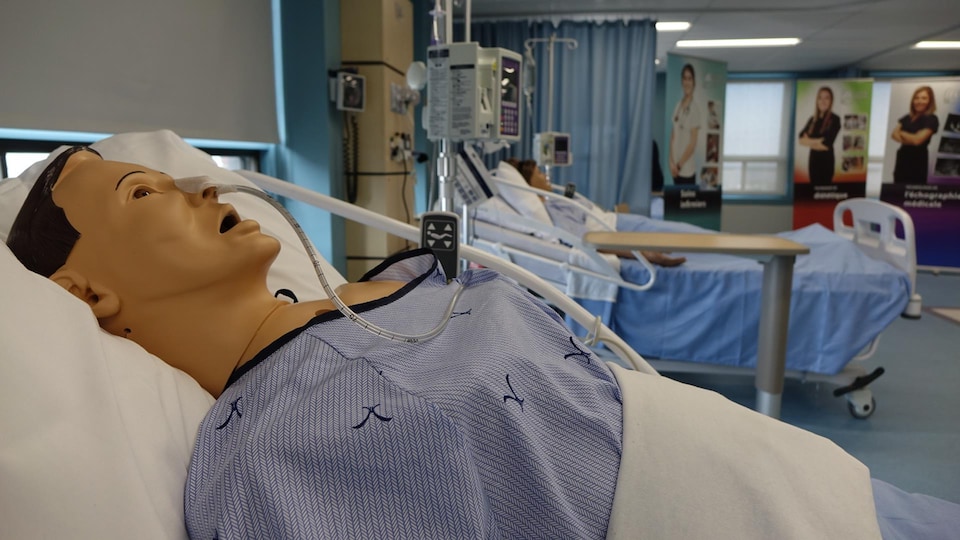The Order of Nurses of Quebec (OIIQ) wants the next generation of health care professionals to obtain a university degree, an important element for them to have more autonomy and so that they can, for example, manage patients. no family. doctor. However, CEGEPs oppose this.
L ‘OIIQ takes a new step in its desire to improve the conditions for entry into the nursing profession.
In short of nearly 300 pages sent to the Office des professions du Québec, theOIIQ in particular, lists proposed changes and exposes the risks of the status quo.
According to this document, consulted by Radio-Canada, the only diplomas that provide access to a driver’s licenseOIIQ must be at university level, after a bachelor’s degree in nursing or a course DEC–BAC.
Currently, a college education (DEC) which is 2925 hours and a university education of 4635 to 4815 hours makes it possible to obtain the same permit to practice when one passes the same professional examination.
According to’OIIQ, College training does not prepare students, in particular, to intervene in complex clinical situations. […] and it cannot be accepted that nurses who have recently graduated from technical education programs engage in professional activities with a high risk of injury..
L ‘OIIQ to the mention of studies reporting a decrease in the hospital mortality rate when the proportion of nurses trained at the baccalaureate level increased.
Quebec has an active nursing workforce of approximately 75,000 people.
The proportion with a bachelor’s degree in nursing is 50%, compared to 69% in Ontario.
A grandfather clause
The memory ofOIIQ also suggests various mitigation measures as well as the grandfather clause.
By adopting the grandfather clause […]all nurses licensed to practice will remain nurses. [Elles conserveront leur permis] and they will not be required to complete a baccalaureateindicates the document.
L ‘OIIQ also provides a list of mitigation measures, including programs to financially support additional studies, to optimize distance education at all universities, and to offer paid internships and programs at residence in clinical settings.
A transition period of several years is also proposed. Ontario, where the new admission standard was adjusted from 2001 to 2005, is cited as an example.
Quebec remains the only province that still uses two distinct levels of training.
L ‘OIIQ maintains, along with supporting figures, that the obligation of new students to complete a university education has a positive impact on the attractiveness of the profession in the three Canadian provinces examined as well as in French-speaking Switzerland .
For its part, a coalition composed of the Fédération des cégeps and teachers ’unions opposes the project ofOIIQ.
The Coalition for the Preservation of DEC Nursing care qualification launched a campaign on social networks earlier this week to promote a college diploma, as well as the quality of training offered at CEGEP by the teaching staff of this program.
The Office des professions should make its recommendations to the government next year.
Source: Radio-Canada
